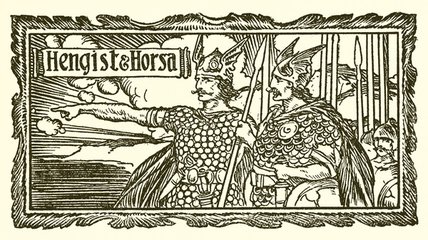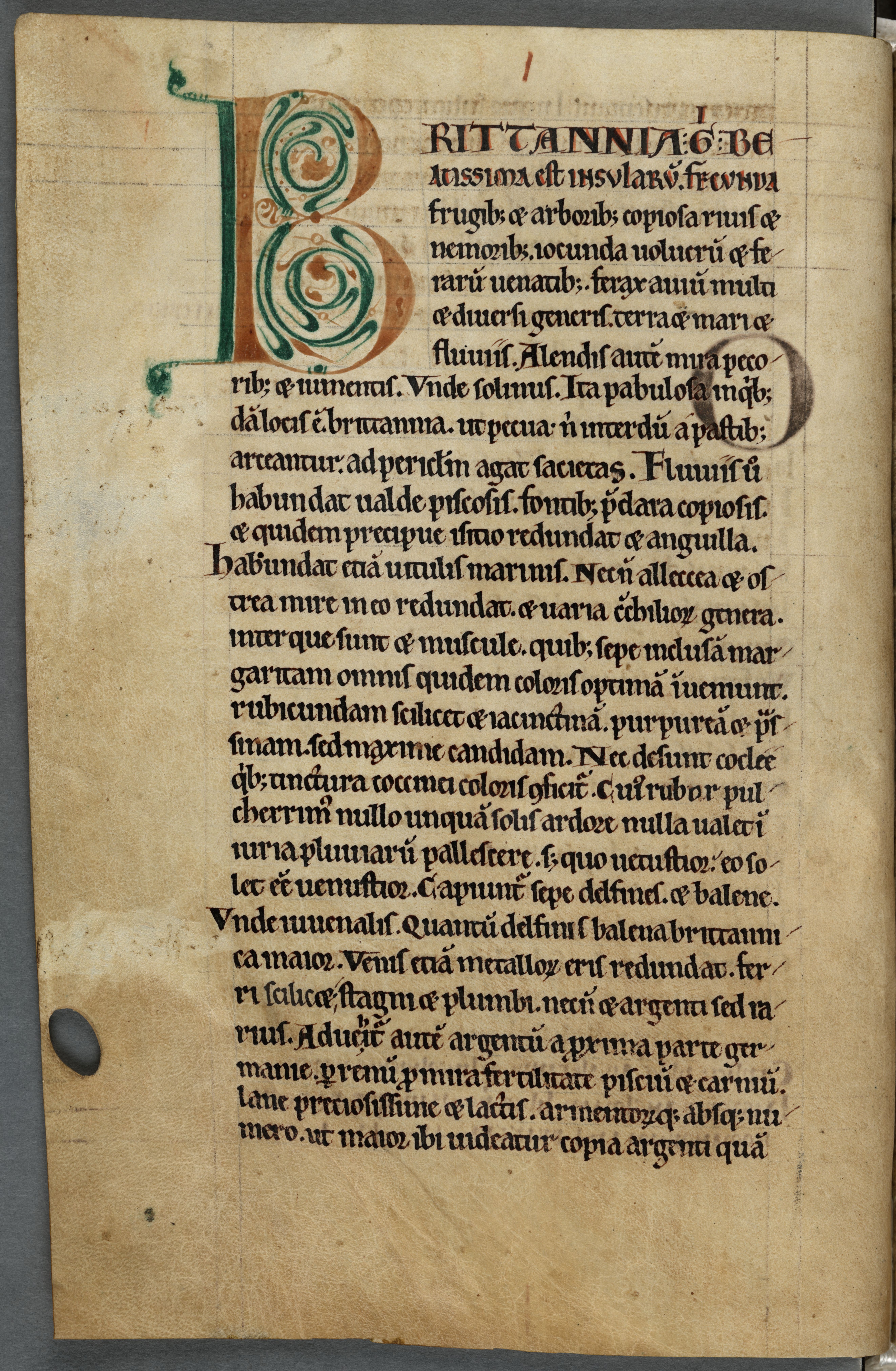|
Witta, Son Of Wecta
Witta son of Wecta is mentioned as a Jutish chieftain in the 449 entry of the ''Anglo-Saxon Chronicle'' as the father of Wihtgils and the grandfather of Hengest and Horsa. He also appears in the same role in Henry of Huntingdon's '' Historia Anglorum''.Book 2, ch. 1 He is most probably mythological Myth is a genre of folklore consisting primarily of narratives that play a fundamental role in a society. For scholars, this is very different from the vernacular usage of the term "myth" that refers to a belief that is not true. Instead, the ..., but as a historical person he would have been born around 400 AD. References British traditional history {{Europe-myth-stub ... [...More Info...] [...Related Items...] OR: [Wikipedia] [Google] [Baidu] |
Wecta
Wecta (Old English: ''Wægdæg'', Old Norse: ''Vegdagr'') is a figure mentioned in the '' Anglo-Saxon Chronicle'' and the '' Historia Brittonum''. Wecta is considered mythological, though he shows up in the genealogies as a Saxon ancestor of Hengest and Horsa and the kings of Kent, as well as of Aella of Deira and his son Edwin of Northumbria. Wecta appears in the '' Prologue to the Prose Edda'' as Vegdeg, one of Woden's sons, a mighty king who ruled East Saxony. Although Wecta is mentioned as the father of Witta and the grandfather of Wihtgils in the ''Anglo-Saxon Chronicle'' and the ''Historia Brittonum'', the ''Prose Edda'' and the Anglian collection of Anglo-Saxon genealogies reverses the order of Witta and Wihtgils in the genealogy. See also * Anglo-Saxon mythology *Germanic mythology * Godwulf *Norse mythology Norse, Nordic, or Scandinavian mythology, is the body of myths belonging to the North Germanic peoples, stemming from Old Norse religion and continuing af ... [...More Info...] [...Related Items...] OR: [Wikipedia] [Google] [Baidu] |
Jutes
The Jutes ( ) were one of the Germanic people, Germanic tribes who settled in Great Britain after the end of Roman rule in Britain, departure of the Roman Britain, Romans. According to Bede, they were one of the three most powerful Germanic nations, along with the Angles (tribe), Angles and the Saxons: There is no consensus amongst historians on the origins of the Jutes. One hypothesis is that they originated from the Jutland Peninsula but after a Danish invasion of that area, migrated to the Frisian coast. From the Frisian coast they went on to settle southern Britain in the later fifth century during the Migration Period, as part of a larger wave of Germanic migration into Britain. They were possibly or probably related to the North Germanic tribe Geats. Settlement in southern Britain During the period after the Roman Britain, Roman occupation and before the Norman conquest, people of Germanic descent arrived in Britain, ultimately forming England. The ''Anglo-Saxon Chr ... [...More Info...] [...Related Items...] OR: [Wikipedia] [Google] [Baidu] |
Anglo-Saxon Chronicle
The ''Anglo-Saxon Chronicle'' is a collection of annals in Old English, chronicling the history of the Anglo-Saxons. The original manuscript of the ''Chronicle'' was created late in the ninth century, probably in Wessex, during the reign of King Alfred the Great (r. 871–899). Its content, which incorporated sources now otherwise lost dating from as early as the seventh century, is known as the "Common Stock" of the ''Chronicle''.Hunter Blair, ''Roman Britain'', p. 11. Multiple copies were made of that one original and then distributed to monasteries across England, where they were updated, partly independently. These manuscripts collectively are known as the ''Anglo-Saxon Chronicle''. Almost all of the material in the ''Chronicle'' is in the form of annals, by year; the earliest is dated at 60 BC (the annals' date for Julius Caesar's invasions of Britain). In one case, the ''Chronicle'' was still being actively updated in 1154. Nine manuscripts of the ''Chronicle'', none of ... [...More Info...] [...Related Items...] OR: [Wikipedia] [Google] [Baidu] |
Wihtgils
A number of royal genealogies of the Anglo-Saxon kingdoms, collectively referred to as the Anglo-Saxon royal genealogies, have been preserved in a manuscript tradition based in the 8th to 10th centuries. The genealogies trace the succession of the early Anglo-Saxon kings, back to the semi-legendary kings of the Anglo-Saxon settlement of Britain, notably named as Hengist and Horsa in Bede's '' Historia ecclesiastica gentis Anglorum'', and further to legendary kings and heroes of the pre-migration period, usually including an eponymous ancestor of the respective lineage and converging on Woden. In their fully elaborated forms as preserved in the '' Anglo-Saxon Chronicles'' and the '' Textus Roffensis'', they continue the pedigrees back to the biblical patriarchs Noah and Adam. They also served as the basis for pedigrees that would be developed in 13th century Iceland for the Scandinavian royalty. Documentary tradition The Anglo-Saxons, uniquely among the early Germanic peoples ... [...More Info...] [...Related Items...] OR: [Wikipedia] [Google] [Baidu] |
Hengest And Horsa
Hengist (, ) and Horsa are legendary Germanic brothers who according to later English legends and ethnogenesis theories led the Angles, Saxons and Jutes, the progenitor groups of modern English people, in their supposed invasion of Great Britain in the 5th century. Tradition lists Hengist as the first of the Jutish kings, or alternatively as the founder itself, of the Kingdom of Kent. Modern scholarly consensus regards Hengist and Horsa as mythical figures, given their alliterative animal names, the seemingly constructed nature of their genealogy, and the unknowable quality of Bede's sources.Halsall (2013:60-62). Their later detailed representation in texts such as the Anglo-Saxon Chronicle says more about ninth-century attitudes to the past than about the time in which they are said to have existed.Yorke (1993).Harland (2021:32). According to early sources, Hengist and Horsa arrived in Britain at Ebbsfleet on the Isle of Thanet. For a time, they served as mercenaries for ... [...More Info...] [...Related Items...] OR: [Wikipedia] [Google] [Baidu] |
Henry Of Huntingdon
Henry of Huntingdon (; 1088 – 1157), the son of a canon in the diocese of Lincoln, was a 12th-century English historian and the author of ''Historia Anglorum'' (Medieval Latin for "History of the English"), as "the most important Anglo-Norman historian to emerge from the secular clergy". He served as archdeacon of Huntingdon. The few details of Henry's life that are known originated from his own works and from a number of official records. He was brought up in the wealthy court of Robert Bloet of Lincoln, who became his patron. At the request of Bloet's successor, Alexander of Lincoln, Henry began to write his ''Historia Anglorum'', first published around 1129, an account of the history of England from its beginnings up to the year 1154. Life Henry was born in about 1088 and died about 1157. He succeeded his father Nicholas as archdeacon of the Diocese of Lincoln in 1110. No personal correspondence or anecdotes survived him and it seemed that no one considered him im ... [...More Info...] [...Related Items...] OR: [Wikipedia] [Google] [Baidu] |
Historia Anglorum (Henry Of Huntingdon) (c. 1255)
{{disambig ...
''Historia Anglorum'' ("History of the English") is the title of two medieval works on the history of England: *by Henry of Huntingdon (c. 1154) *by Matthew Paris Matthew Paris, also known as Matthew of Paris (; 1200 – 1259), was an English people, English Benedictine monk, English historians in the Middle Ages, chronicler, artist in illuminated manuscripts, and cartographer who was based at St A ... [...More Info...] [...Related Items...] OR: [Wikipedia] [Google] [Baidu] |
Mythological
Myth is a genre of folklore consisting primarily of narratives that play a fundamental role in a society. For scholars, this is very different from the vernacular usage of the term "myth" that refers to a belief that is not true. Instead, the veracity of a myth is not a defining criterion. Myths are often endorsed by religious (when they are closely linked to religion or spirituality) and secular authorities. Many societies group their myths, legends, and history together, considering myths and legends to be factual accounts of their remote past. In particular, creation myths take place in a primordial age when the world had not achieved its later form. Origin myths explain how a society's customs, institutions, and taboos were established and sanctified. National myths are narratives about a nation's past that symbolize the nation's values. There is a complex relationship between recital of myths and the enactment of rituals. Etymology The word "myth" comes from Ancient ... [...More Info...] [...Related Items...] OR: [Wikipedia] [Google] [Baidu] |



